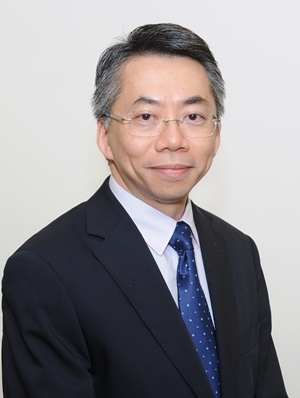About HKCFP > President’s Message

June 2017
|
Here comes the Medical Registration (Amendment) Bill 2017 or Bill 2016 Mark II
again on the Medical Council reform. The Bill returns with two main changes. Firstly, Medical Council (MCHK) members will increase from the current 28 to 32 with four additional lay members, the latter will not be appointed by the Chief Executive of Hong Kong SAR. Three of the lay members will be elected from recognized patients’ groups and the fourth will be nominated by the Consumer Council. Secondly, the two appointed seats now held by Hong Kong Academy of Medicine will also be elected by the Academy. The latest Bill also proposes more than one Preliminary Investigation Committee and the number of assessors will increase from 28 to 140 in order to clear the backlog of medical complaints.
Bill 2016 had caused a storm in our medical field and was stalled and filibustering staged by the medical-sector lawmaker. Last year the President of Hong Kong Medical Association (HKMA), Dr. Louis Shih resigned due to the lack of support to call for referendum to release the 7 seats occupied by HKMA for open election by all its members. The result was no winner and the reputation of doctors was severely damaged! I consider inadequate government consultation as the main cause of failure.
|

|
This time the government had set up a Tripartite Platform to collect viewpoints from different stakeholders but when the proposed amendment was announced in May 2017, I was really disappointed! I have always argued for the betterment of the Medical Council and all the doctors, and the uniqueness of HKAM in postgraduate training and examination, it should have more representation within the MCHK rather than the mere two. Redistribution of the current allocation of representation from various medical bodies in MCHK is desirable. In fact the Academy had requested an extra three seats. Our College is one of the 15 constituent Colleges which are equally represented at the HKAM Council. The Academy and her Colleges can certainly influence the training curriculum, enhance the education of doctors and through continuing medical education improve risk management and alter undesirable behaviour. Again, the government doesn’t listen and the increase in representation is not even mentioned.
Hong Kong doctors still command a high degree of respect from the public. Doctors to laypersons ratio in the Medical Councils in Canada, Australia and New Zealand are 2:1. In United Kingdom, the ratio is 1:1 and all its members are appointed following an independent appointment process. With the lastest Bill 2017, half of the MCHK will be elected while the share of appointed seats will go down from half to one third. However, with the incumbent Chief Executive leaving his post and lawmakers from both pro government and pan democratic groups gather under the flags of transparency, accountability and credibility, I can only see the Bill going through the Legco without much resistance.
I had explained through FP Links that election of representatives via the HKAM Council demonstrates fairness to all Colleges irrespective of their sizes, which vary significantly from under 200 to over 1,600 Fellows. A general polling is fair to individual Fellows but may sacrifice the rights of Colleges with a smaller number of Fellows. Weighing the two, the rights of Colleges are more important than individual, as each specialty College makes an equal contribution to the public. The sad reality is our College ranked sixth in size within the Academy. A general election from all AM fellows is unfair to those Colleges with fewer fellows, as the two biggest Colleges namely the Physicians and the Surgeons will always be represented at MCHK. If the seats of HKAM are opened for nomination or election, I will actively campaign for fairness and participation of our AM fellows. Those elected by the HKAM Council to sit in MCHK needed to have the necessary experience, qualification, reputation and respect of the medical profession. Under the current system, we had two top guns,
namely Prof Donald Li and Prof Cindy Lam served for MCHK from 2009 to 2012. With the volume of complaints regarding primary care doctors at the MCHK, it is simple logic that our College has representation at MCHK.
Dr. Harold Shipman, a GP in England, was convicted in 2000 of the murder of fifteen of his patients and sentenced to life imprisonment. After his trial, a full inquiry into all deaths certified by Shipman concluded that he was probably responsible for about 250 deaths. Some of us may think Shipman’s case as impetus for the change and addition of lay members to General Medical Council UK (GMC) and MCHK is the copycat. In fact the reform of GMC was long overdue and the major change was to speed up the introduction of revalidation. Revalidation was not drawn up in response to the Shipman inquiry, but proposed by the GMC even before Shipman was arrested. Its rationale was not to uncover criminality, was never intended to catch another Shipman, but to
fill a gap in the regulatory framework whereby, barring serious concerns being raised, doctors could practise from registration to retirement without any check on their performance or competency. Revalidation is to encourage increasing quality in healthcare for patients through self-assessment, appraisal, continuing medical
education and reflective practice. Hong Kong loves to compare with Singapore. Looking at the Singapore Medical Council home page, the first message highlights on the top: “the Council has implemented compulsory CME with effect from 1 January 2003”. Singapore is way ahead of us by 14 years!
Dr. Angus M W CHAN
PresidentBack